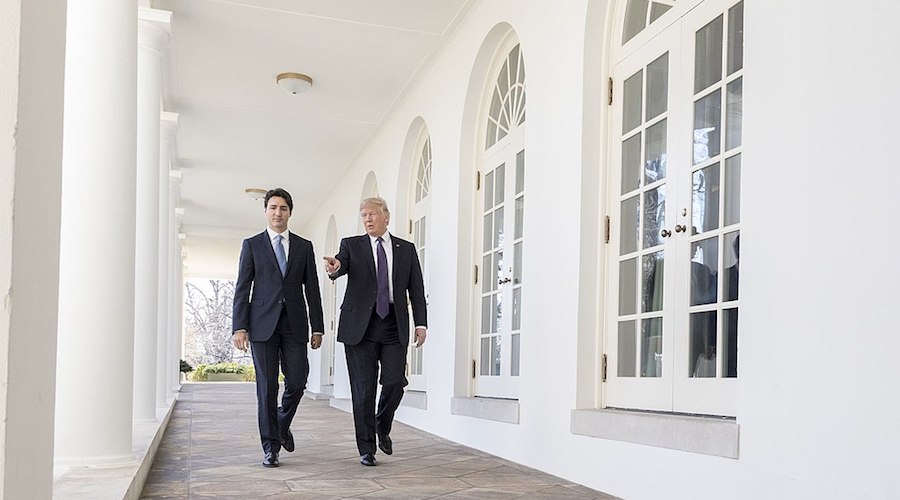Trump tariff plan would knock US-Canada-Mexico metals and mining


United States president-elect Donald Trump’s pledge to slap double-digit tariffs on America’s top trading partners will snarl metals supply chains and lower demand, analysts and industry leaders said.
Trump said Monday he would impose 25% duties on goods from Canada and Mexico, and 10% on products from China until they clamped down on illegal migrants and cross-border narcotics.
Canadian Prime Minister Justin Trudeau, Mexican President Claudia Sheinbaum as well as economists reacted strongly, saying the moves would cause a trade war, causing higher inflation and damaging economies. The circa US$1 trillion a year in trade that flows from Mexico, China and Canada to the U.S. is intertwined in the energy and auto sectors through decades of agreements, such as NAFTA and its successor the USMCA.
“This would effectively end the U.S.-Mexico-Canada agreement which took effect in 2020, allowing free flow of goods between North American partners,” BMO Capital Markets said in a note on Tuesday.
“We see this as putting downward pressure on North American metals demand forecasts into 2025, while we expect Chinese goods to be diverted to other emerging markets where possible,” BMO research director Colin Hamilton said.
The impact on the auto sector could be the most devastating as U.S. companies Ford, General Motors and Chrysler brand owner Stellantis, as well as Volkswagen and others, depend on cars and parts assembled in Canada and Mexico. All vehicles, whether fossil fuel powered or electric, rely on metals and mining.
Ontario is devoting a bulk of its economic strategy to northern mines supplying minerals to southern industry. There’s been some $44 billion in recent investments by companies and the province for processing plants, battery factories and vehicle assembly lines.
It was unclear at this stage what goods the U.S. tariffs would target, although they won’t exempt crude oil, Reuters reported, citing two sources familiar with Trump’s plan. Canada is now the largest oil supplier to the U.S. Taxing one natural resource could suggest mineral products wouldn’t be exempt either.
The Mining Association of Canada said it would wait for more details before commenting. The Prospectors & Developers Association of Canada (PDAC) called the tariffs plan destabilizing.
"Canada’s mineral exploration and mining industry relies on strong trade relationships, particularly with key partners like the United States,” Jeff Killen, PDAC's director of policy and programs, said by email. “Tariffs of this magnitude would disrupt cross-border supply chains, hinder the reshoring of industrial capacity, and weaken North America’s efforts to reduce reliance on foreign mineral products.”
Trudeau said he would call a meeting of premiers to discuss the tariff impacts and how to respond. Canada’s central bank said both sides of the border would hurt. China’s ambassador in Washington said no one would win a trade or tariff war.
Trump harangued about tariffs as a way to punish other countries during the recent election campaign. But its domestic companies importing products would be the ones paying higher duties to the U.S. government, not foreign industries.
Those higher costs are passed on to consumers, a fact that appeared largely ignored by the wave of voters who said they voted for Trump because of his stance on the economy and to give themselves more money in their pockets. Some estimates today said the plan would add US$2,600 a year to family purchases.
Comments